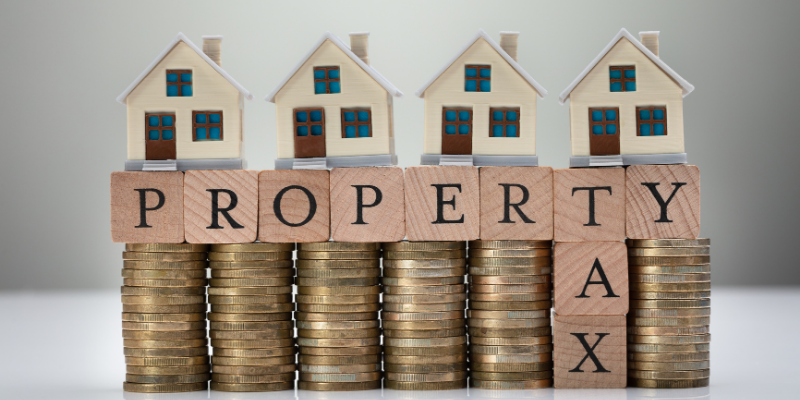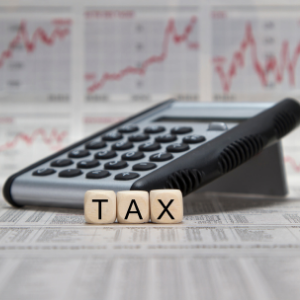
Understanding Property Tax Rates in Gainesville, Florida
Understanding property tax rates in Gainesville, Florida, is critical for homeowners and real estate investors who want to make sound financial decisions. Property taxes in Gainesville are calculated using the assessed value of the property and the millage rate established by local taxing bodies.
The Alachua County Property Appraiser’s Office is responsible for appraising property values annually to ensure they represent fair market value. Several taxing organizations, including the city of Gainesville, Alachua County, and the local school system, set millage rates, directly impacting the total tax due.
These rates can change depending on budgetary constraints and voter-approved initiatives. Property owners must stay up to date on any changes in assessment procedures or millage modifications to prepare their budgets properly.
Knowledge of homestead exemptions and other accessible tax relief programs can significantly reduce overall property tax payments, making Gainesville a more appealing investment destination while remaining affordable for homeowners.
Historical Trends in Property Tax Rates in Alachua County, Florida

Property tax rates in Alachua County, Florida, particularly in Gainesville, have shifted over time due to economic developments and regulatory changes. Historically, these rates have been influenced by local government budgets, public service funding requirements, and real estate market trends.
During periods of economic expansion, increasing property values frequently result in higher assessed valuations, which then influence the tax rates imposed by local governments. In contrast, millage rates may be changed during economic downturns or housing market corrections to balance fiscal needs with taxpayer affordability.
Additionally, voter-approved school finance or infrastructure development measures can impact property owners’ overall tax burden. Understanding these historical trends is critical for homeowners and real estate investors who want to make sound decisions about their investment property in Gainesville’s thriving real estate market.
Key Factors Influencing Gainesville Property Taxes
Several significant factors determine property tax rates in Gainesville, Florida, which homeowners and real estate investors should know. A property’s assessed value is primarily determined by the fair market value as appraised by the Alachua County Property Appraiser’s Office.
Changes in the local real estate market might cause swings in these assessments, which affect tax liabilities. Homestead exemptions substantially impact primary dwellings, potentially reducing taxable amounts and lowering annual taxes.
Additionally, millage rates established by local taxing authorities, such as city councils or school boards, directly impact the amount of tax levied per $1,000 of assessed property value. These prices change annually based on budgetary requirements for education, infrastructure repair, and emergency services.
Economic conditions also influence funding requirements, affecting the income generated by property taxes. Understanding these elements helps explain why Gainesville’s property taxes may rise or fall over time.
Local Government’s Role in Setting Property Tax Rates in Gainesville
Local government has a critical role in deciding property tax rates in Gainesville, Florida, affecting homeowners and real estate speculators. The city council and other municipal organizations examine the community’s financial needs to fund critical public services such as education, infrastructure upkeep, public safety, and parks.
These governing bodies examine budgetary requirements and establish millage rates to ensure adequate revenue generation. Millage rates are the taxes levied per $1,000 of assessed property value.
These rates are set annually in Gainesville depending on predicted spending and economic conditions. Local government officials must also follow state regulations while balancing taxpayer interests and community development objectives.
Their decisions directly impact the fiscal climate for residents and potential investors interested in the Gainesville real estate market. Understanding this process allows property owners to predict tax bills better and make informed investment decisions that match their financial goals.
Gainesville’s Real Estate Market and Its Effect on Property Taxes
The local real estate market heavily influences property tax rates in Gainesville, affecting homeowners and investors. Gainesville, a lively city noted for its educational institutions, cultural attractions, and expanding economic prospects, draws a diverse population looking for residential and investment homes.
The demand for homes in Gainesville frequently causes property value swings, affecting property tax assessments. Local governments rely on these assessments to calculate the revenue required for public services such as schools, infrastructure upkeep, and emergency services.
Property prices rise in response to increased demand or new developments, resulting in higher assessed valuations and thus higher property taxes. In contrast, a downturn in the real estate market may result in lower property values and tax rates.
Understanding these dynamics is critical for anybody in the Gainesville real estate industry as they consider the financial ramifications of owning or investing in local properties.
How New Developments Affect Gainesville’s Property Tax Assessments
New developments in Gainesville, Florida, considerably impact property tax assessments, affecting homeowners and real estate speculators. When new residential or commercial projects emerge, they frequently improve the overall infrastructure and facilities in the neighborhood.
This enhancement may increase property values, impacting the assessed valuation for property tax purposes. As these improvements increase demand for local properties, assessment values may rise, resulting in increased property tax burdens for adjacent lots.
Furthermore, new construction can change community dynamics by providing new services and facilities that attract more residents and companies. This growth boosts economic activity and requires more governmental services supported by taxes.
Understanding these shifts is critical for real estate investors because they influence investment returns and financial planning. In Gainesville’s continually changing landscape, understanding how each development affects property tax assessments is critical for strategically purchasing or keeping regional properties.
Impact of Local Infrastructure Projects on Property Taxes in Gainesville

Local infrastructure developments in Gainesville, Florida, substantially impact property tax rates, affecting homeowners and real estate speculators. As the city invests in infrastructure improvements such as road expansions, public transportation upgrades, and utility improvements, the accompanying expenditures may result in property tax modifications.
These developments attempt to improve residents’ quality of life and attract new businesses, ultimately increasing property values over time. However, supporting these initiatives frequently necessitates greater property tax revenue.
Homeowners may see an increase in their tax bills as the city distributes resources to maintain and improve public amenities like parks and schools. Understanding how infrastructure upgrades affect property taxes is critical for real estate investors evaluating prospective returns.
As Gainesville grows and evolves, staying updated about local government plans for infrastructure growth can help predict changes in property tax demands, allowing for more effective financial planning and investment options.
These projects often boost property values but can also make it harder for some homeowners to keep up with higher tax bills. That’s where Yellow Card Properties steps in—offering homeowners a way to sell their Gainesville house fast and avoid financial strain caused by rising property costs.
Understanding the Relationship Between School Funding and Property Taxes in Gainesville
In Gainesville, Florida, homeowners and real estate investors must grasp the relationship between school financing and property taxes. Property taxes are the principal funding source for local public schools and directly impact educational quality.
The Alachua County School District relies largely on property tax income to support basic educational programs, school buildings, and teacher compensation. When property prices rise, so do property tax assessments, increasing tax revenues to improve educational resources and programs.
Conversely, if property values fall or legislative tax rate limitations are imposed, the school district may encounter budget problems. Understanding how these factors influence present and future property tax obligations is critical for anybody participating in the Gainesville real estate market.
When property prices rise, homeowners gain from improved local schools, whereas investors must evaluate how changes in the property tax landscape affect their prospective returns. Thus, remaining educated about legislative decisions affecting school finance and its reliance on property taxes is critical for wise financial decisions in the Gainesville real estate market.
Exemptions and Deductions for Gainesville Homeowners
Gainesville homeowners can benefit greatly from numerous exemptions and deductions for property tax rates. These provide potential savings that are particularly significant for both new and experienced real estate investors. The most prominent is the Homestead Exemption, which reduces the assessed value of a primary dwelling, resulting in lower overall property taxes owing.
This exemption reduces taxable value by up to $50,000 and provides further safeguards through the Save Our Homes assessment limitations, which limit annual increases in assessed value. Senior citizens might receive additional exemptions if they meet specific age and income requirements.
Veterans may be eligible for particular veteran-related exemptions or discounts based on their service history and any disability incurred while serving. Gainesville also provides exemptions for disabled homeowners, providing financial assistance customized to their circumstances.
Understanding these local tax perks is critical for optimizing investment returns and lowering homeownership costs in Gainesville, Florida. Property owners might improve their financial planning in the local real estate market by efficiently utilizing these exemptions and deductions.
Even with these savings, some property owners still find rising taxes overwhelming. In these cases, Yellow Card Properties provides an excellent alternative by making fair cash offers for homes in Ocala and surrounding cities like Alachua, and Lake City, helping you move forward without financial stress.
How to Calculate Your Property Tax Liability in Gainesville

Calculating property tax liability in Gainesville, Florida, necessitates a working knowledge of several crucial variables that dictate the final amount due each year. The process commences with the verified assessed value of the property, which the Alachua County Property Appraiser establishes annually. This value reflects an estimate of market worth, potentially modified to account for legally authorized exemptions. The most significant for most homeowners is the homestead exemption that applies to their permanent residence.
After securing the final assessed value, the next task is multiplying that figure by the relevant millage rate, expressed as an amount for each $1,000 assessed value. The millage rate for Gainesville is a composite of several levies, some of which are imposed by the city, others by the county, and an additional component from the school district. These rates produce a single tax coefficient that is the basis for computing the annual liability.
Lastly, the tax is derived by executing the straightforward multiplication of the composite millage rate and the assessed property value. As rates and exemptions may alter yearly, consistently monitoring any modifications in local millage rates and newly enacted exemption programs is prudent. Doing so empowers homeowners and real estate investors to plan and budget their financial responsibilities in a market as volatile as North-Central Florida.
Step-by-step Guide to Paying Property Taxes in Gainesville
To satisfy property tax obligations in Gainesville, Florida, it is imperative to follow a clearly delineated sequence of actions to ensure that payments are precise and punctual. Initially, property owners—whether residing or investing—should ascertain the assessed value of their holdings, a figure determined annually by the Alachua County Property Appraiser.
The assessed value is the numerator in the equation that generates the final tax obligation. Subsequently, it is necessary to scrutinize the property tax notice dispatched by the Alachua County Tax Collector. This communication summarizes the total tax owed, specifies applicable exemptions, and documents any discounts the taxpayer may claim.
It is incumbent upon the recipient to validate every item asserted in the notice. Should the data appear accurate, payment may be remitted in various accepted forms—via the official Alachua County website, in person at specified Tax Collector offices, or through standard postal channels.
Taking action ahead of the calendar deadlines is financially prudent, since the Tax Collector grants a modest discount for obligations settled early in the fiscal year. Familiarity with payment deadlines is likewise essential; any delay in submitting the tax payment incurs both penalties and interest, fees that can grow disproportionately over time.
By adhering to these sequential tasks and remaining informed of any amendments to local property tax law, Gainesville residents and investors can fulfill their tax commitments judiciously and, where feasible, mitigate their liability through statutory exemptions and reductions.
What Age Do Seniors Stop Paying Property Taxes in Florida?
Florida seniors, including those in Gainesville, can access property tax relief mechanisms designed to reduce their annual tax liability but not wholly eliminate it. No fixed chronological threshold exists at which homeowners are absolved from property tax obligations; instead, the state permits individuals aged 65 and older to apply for the Senior Exemption, which caps the taxable value for qualifying applicants.
To qualify, applicants must have occupied the dwelling for a minimum of continuous occupancy, have income not exceeding the statutory limitation, and must continue to occupy the property as their permanent residence. The frequently combined Homestead Exemption further reduces the assessed value for all owner-occupied properties, amplifying tax savings when paired with the Senior Exemption.
Property owners and those contemplating real estate investment in Gainesville are advised to familiarize themselves with the mechanisms and qualifications of these statutory reliefs to incorporate realistic tax expenditures into financial projections. The Alachua County Property Appraiser’s Office is the authoritative source for determining eligibility and ensuring the application of all relevant tax incentives. Seniors are encouraged to contact the office early in the tax year to maximize property tax savings.
What Is the Tax Rate in Alachua County?
The effective property tax rate in Alachua County—including Gainesville—remains a crucial input for homeowners’ and real estate investors’ valuation. As formally set in the latest budget cycle, the county’s millage rate is the principal variable defining the tax burden to be paid on residential and commercial parcels.
Calculating the resultant property tax is straightforward: the millage rate, expressed in mills per dollar of taxable value, is multiplied by the county’s assessed value for the property in question. Therefore, comprehension of the millage provides a necessary contour for forecasting annual housing costs with reasonable precision.
Revenue accrued through property taxation underwrites the county’s functional framework, financing public education, public works maintenance, and a spectrum of emergency and public safety services extending beyond the city of Gainesville. Consequently, property owners and prospective buyers should scrutinize periodic adjustments to county and municipal millage levels, equipping themselves to recast the household or business budget accordingly.
In addition, commercial stakeholders examining prospective acquisitions within Gainesville and surrounding unincorporated Alachua County must incorporate these tax liabilities directly into the analytic models for net operating income and eventual yield, to arrive at unimpaired internal rate of return assessments. Ongoing engagement with updates to the county’s property taxation framework is essential for sustained portfolio performance, offering clearer visibility of both present encumbrances and future obligations in the real estate fiscal landscape.
What City Has the Highest Property Tax in Florida?
A statewide examination of property tax burdens reveals that Gainesville does not occupy the top position. Despite its well-developed urban services, steady population growth, and well-regarded educational institutions, Gainesville maintains comparatively moderate tax burdens.
By contrast, the coastal metropolitan areas of Miami and Tampa often impose higher rates, driven by urban density and the elevated market values common in coastal metropolitan ecosystems. An accurate understanding of these municipal taxation regimes equips residential and commercial property owners to refine their fiscal long-term planning.
When potential buyers and investors set their sights on Florida, analyzing Gainesville’s levy alongside the comparatively higher rates of leading metropolitan hubs enables more informed choices on site selection and capital allocation in statewide real estate markets.
What’s the Average Property Tax on a House in Florida?
One must grasp the components that influence the final assessment to derive the average property tax on residential real estate in Florida. While statewide property tax rates fall below the U.S. average, the effective burden can differ markedly from one jurisdiction to another; the city of Gainesville is a pertinent example.
In the case of Gainesville, property tax liabilities hinge upon the assessed value of the home and the applicable millage rates set therein. The effective statewide average tax rate approximates 0.83% of assessed value. Yet, Gainesville residents may encounter variances from distinct county and municipal budgetary needs and targeted special assessments unique to that jurisdiction.
Prospective homeowners and property investors must familiarize themselves with the mechanics of rate calculation and evaluate the impact of exemptions and limitations afforded by the Florida statutes. The Homestead Exemption and the Save Our Homes assessment cap are primary mechanisms that can substantially moderate liability. A careful analysis of these factors is indispensable for prudent financial forecasting when evaluating acquisitions in Gainesville’s active and competitively priced real estate sector.
Whether you’re dealing with rising property taxes, planning to relocate, or simply need a quick and hassle-free sale, Yellow Card Properties can help by offering fast, fair cash offers and guiding you through a seamless home-selling process in Gainesville and nearby areas. Contact us at (904) 539-4420 today to know how we can help!
Helpful Gainesville, FL Blog Articles
- Selling Inherited Real Estate With Multiple Owners In Gainesville, FL
- Strategies To Prevent House Foreclosure In Gainesville, FL
- Sell Your Home By Owner In Gainesville, FL
- Can Your HOA Really Foreclose On Your Gainesville, FL Home?
- Does Selling Your House In Gainesville, FL Affect Your Medicare Coverage?
- Understanding Gainesville, Florida, Property Tax Rates
- Essential Guide To House Appraisals For Divorce Settlements In Gainesville, Florida
- How To Navigate Selling A House With Unpermitted Work In Gainesville, FL
- Fixing Up a House to Sell in Gainesville, FL
- Sell Home to Pay Off Debt in Gainesville, FL
- Should I Replace My Roof Before I Sell My House in Gainesville, FL?
- Do All Heirs Have to Agree to Sell Property in Gainesville, FL?
- How Long Can a Seller Stay in the House After Closing in Gainesville, FL
- Can I Sell My House in Gainesville, FL with a Pending Insurance Claim?

| TAXPAYERS | LEVY | REAL ESTATE TAX | OWNER-OCCUPIED | MORTGAGE | MONEY |
| FEES | CONVENIENCE FEE | TRANSACTION FEE | FIRST LIEN | LIEN | INFORMATION |
| ESTATE TAX | ESTATE TAXES | GROSS INCOME | FY24 | FISCAL YEAR | INBOX |
| AD VALOREM | AD VALOREM TAX | U.S. | PAYPAL | GAINESVILLE REGIONAL UTILITIES | |
| GAINESVILLE REGIONAL UTILITIES (GRU) | DISABILITY | DISABLED PERSONS | DEBIT | LAW | FAX |
| GAINESVILLE FL 32601 |
